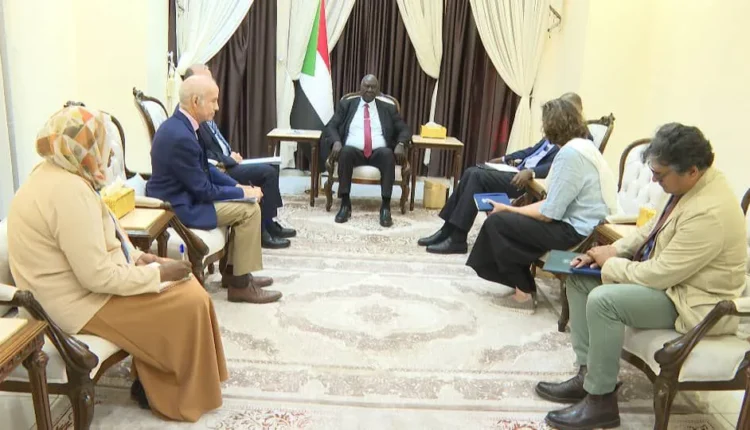Sudan Reaffirms Its Commitment to Facilitate the Delivery of Humanitarian Aid to Those in Need

Port Sudan – Sudanhorizon
The Vice President of the Transitional Sovereignty Council, Malik Agar Eyre, reaffirmed the Sudanese government’s keenness and commitment to work to facilitate the delivery of humanitarian aid to those in need and facilitate the work of relief teams and humanitarian workers.
Agar reviewed, during his meeting in his office in Port Sudan on Tuesday with a UNICEF delegation headed by UNICEF Deputy Executive Director Lord Shevan, the efforts made by the government by opening various crossings and local Sudanese airports to bring in humanitarian aid and facilitate the work of teams and organizations, stressing the importance of working to provide all services to citizens affected by the war.
The Deputy Executive Director of UNICEF, Edward, said, “The meeting touched on the situation in Sudan and how to provide support to the Sudanese people under the current circumstances, and the necessity of delivering some urgent humanitarian needs from the point of view of UNICEF and the United Nations High Commissioner for Refugees.”
He stressed their commitment to continue support and coordination in cooperation with the Sudanese government to facilitate access to those in need in different parts of the country, especially Zalingei and Kadugli, stressing the importance of facilitating the delivery of aid across borders by land and air, appreciating the government’s role in opening various airports, which contributed to reaching many people facing severe food insecurity, noting that there are approximately 4 million children at risk of severe malnutrition and daily infections.
For his part, Deputy High Commissioner for Refugees Raouf Mazou explained that the meeting discussed the conditions of internal displacement, the large number of displaced persons, estimated at more than 10 million, and the need to provide them with the necessary protection and assistance.
He added that the delegation discussed the conditions of Sudanese abroad, whose number is estimated at one million. These Sudanese are in neighbouring countries receiving protection and assistance from these countries, which requires providing resources from the international community, overcoming existing challenges, mobilizing the necessary resources, and finding ways to ensure the ability to continue assisting.
He stressed the importance of enhancing cooperation and coordination to carry out the required role, noting that UNICEF and UNHCR will remain effective in humanitarian issues in light of the country’s current circumstances.
Shortlink: https://sudanhorizon.com/?p=2149

